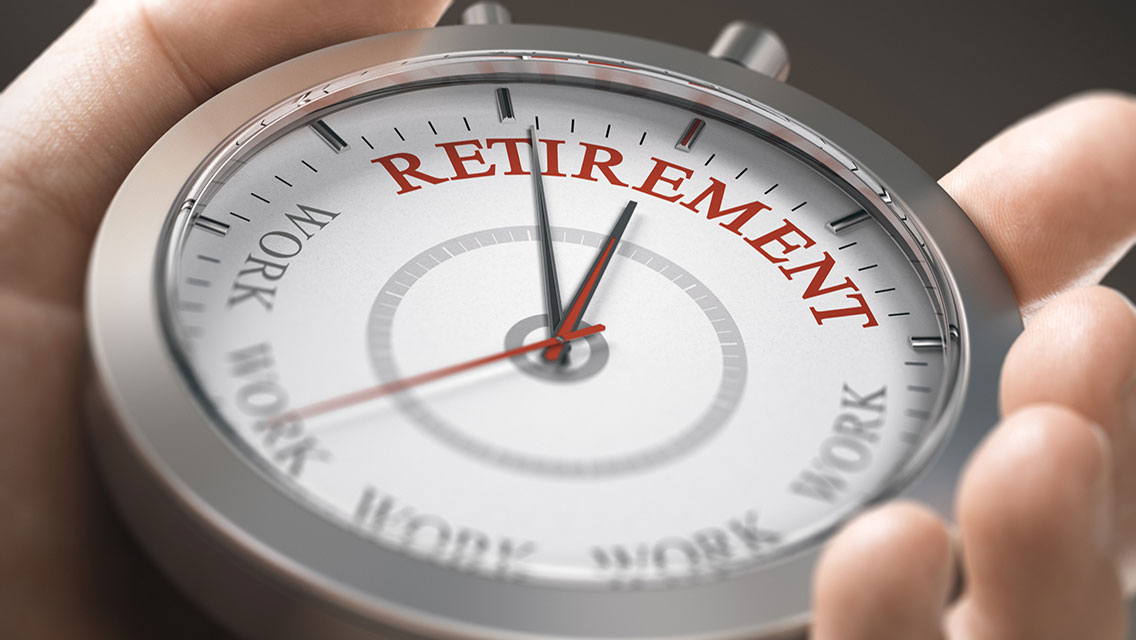I’ve never given serious thought to retiring, even as I meander through my eighth decade. And, as I watch friends and relatives glide off into the presumed tranquility of a postemployment life, I sometimes fancy myself an outlier among the senior set. Nothing could be further from the truth.
Much has been written in recent months about the gerontocracy that dominates the national political scene, but as Marc Fisher reports in the Washington Post, retirement seems to hold little allure for a broad spectrum of older workers these days. “In medicine, big business, farming, construction trades, and across much of the American economy, the workforce is getting older and older,” he writes. “In the leadership ranks, the elderly are increasingly staying in command, well past traditional retirement age, which can sometimes limit the positions available to younger workers from a wider variety of backgrounds.”
This graying of the workforce can in part be attributed to simple numbers: There are so many boomers that it shouldn’t be surprising we’re dominating the workforce even in our dotage. But Fisher also points to medical advances that have extended lifespans — and careers. Jack Fitzgerald, 88, still runs 16 car dealerships in three states, for instance, and he admits he’s been cheating death for years. “I had my aortic valve replaced with a bull’s valve. I just had a pacemaker installed this spring. I have two bad knees and I had one repaired,” he says. “I’m sitting here talking to you and there’s no way I should be alive.”
Experience counts for something, as well, and the pressures wrought by a global pandemic pushed many companies to place a premium on veteran leadership — and employees — who could help them ride out the storm. Some industries, like the construction trades, however, haven’t enjoyed the luxury of choosing which employees to value; they have struggled for years to recruit and retain younger workers, a reality that has created a “silver tsunami” among electricians and other blue-collar occupations.
Young farmers are a similarly rare breed, so Phil Rettig, 62, can call himself lucky. His 32-year-old son is stepping up to take over the operation of his Ohio farm, which has been in the family for more than 150 years. The trouble is, the elder Rettig doesn’t quite know what to do with himself. “I’m quite lost from not working,” he tells Fisher. “We’re new grandparents, and that helps me with finding purpose, but I’m addicted to accomplishment.”
Virginia Boothe can relate. The palliative care physician retired at 69 and threw herself into volunteer work, but a year later she found herself yearning to get back into the clinic. “It’s driving me nuts,” she concedes. “I have way too much free time. And I feel the most competent and proficient that I’ve ever felt in my life. I really feel I’m at my peak, really able to help people.”
The postretirement challenge Rettig and Boothe are hinting at — that leaving the workforce can be deflating — has been widely documented. It can also be hazardous to your health. Studies have shown that seniors who hold down a job are less likely than retirees to struggle with cognitive impairment. Prior research suggests that delaying retirement may even extend your lifespan.
There are some obvious caveats. Those engaged in hard labor tend to find their health improves once they’ve retired. “If you’re leaving a job that is physically bad for you, where you are getting terrible sleep and you’re constantly stressed out, then retirement is great for your health,” says Lisa Renzi-Hammond, MD, director of the Institute of Gerontology at the University of Georgia.
That certainly was the case with my dad, who had to give up his job shlepping beer kegs into local bars after his second heart attack, at the age of 51. He never struggled with cardiovascular issues in retirement (he did quit his pack-a-day Marlboro habit) and seemed more content than usual. My occupation, on the other hand, involves no heavy lifting, no stressful commute, and no 9-to-5 drudgery. My colleagues are competent and compassionate, my schedule is flexible, my compensation is generous, and my work is challenging. It is, in other words, a terrific gig — one that I’d be foolish to jettison even if My Lovely Wife and I had managed to squirrel away enough dough to pay off the mortgage and ensure a financially secure retirement.
Plus, to hear C. Eugene Steuerle and Glenn Kramon tell it, I’m doing the country a favor. Writing in the New York Times, Steuerle, cofounder of the Urban-Brookings Tax Policy Center, and Kramon, a Stanford Business School lecturer, argue that the nation needs even more seniors in the workforce if it is to avoid some painful economic choices in the future.
“We older Americans are not only controlling national politics; we are consuming an ever larger share of our economy’s resources through programs like Social Security and Medicare, leaving younger Americans to foot growing bills for their parents’ and grandparents’ retirements,” they note. “And politicians of both parties are refusing to recognize the consequences.”
When you do the math, they say, the problem becomes clear: Retirees are receiving more money from Social Security and Medicare than they’ve deposited because they’re all living well past the age when they became eligible to collect the largesse. Meanwhile, there aren’t nearly enough people in the workforce to adequately restock the government’s coffers — the ratio of workers to retirees continues to fall. There were four workers supporting every beneficiary in 1965; today, even with the uptick in older workers, there are 2.7. Twenty years from now, according to some projections, it’ll be 2.3.
The way to rescue these troubled entitlements has never been a mystery: Raise the minimum retirement age along with the age when you’re eligible to collect full benefits while also lifting the ceiling on the payroll tax, which supports both programs. But it’s been 40 years since Congress last raised the age of full retirement from 65 to 67, and any mention of such unpopular reforms strikes fear in the hearts of most politicians.
That being the case, seniors simply need to delay retirement as long as possible. “Those in late middle age will need to work longer as they live longer,” Steuerle and Kramon argue. “That would help shore up revenue with additional Social Security taxes and the income taxes that largely pay for Part B of Medicare. It would also reduce pressure to cut benefits for the oldest of the old.”
For those workers whose physically demanding jobs prevent them from working beyond the current retirement age, Congress could expand the guidelines governing disability payments and offer these benefits at age 60. “We’re not asking a laborer or trucker who did backbreaking work for decades to keep working,” they explain. “A strong minimum benefit could essentially eliminate poverty among the elderly.”
I’ve never considered that my stubborn refusal to step away from the workaday world might qualify as a public service, but it could be a convenient rejoinder the next time my older brother questions my motivation. He can’t quite imagine that someone could enjoy their job enough to stick it out into their 70s and beyond, so I could explain that it’s all about serving my country.
He knows me better than that, of course. I’d eventually have to mention the mortgage.




